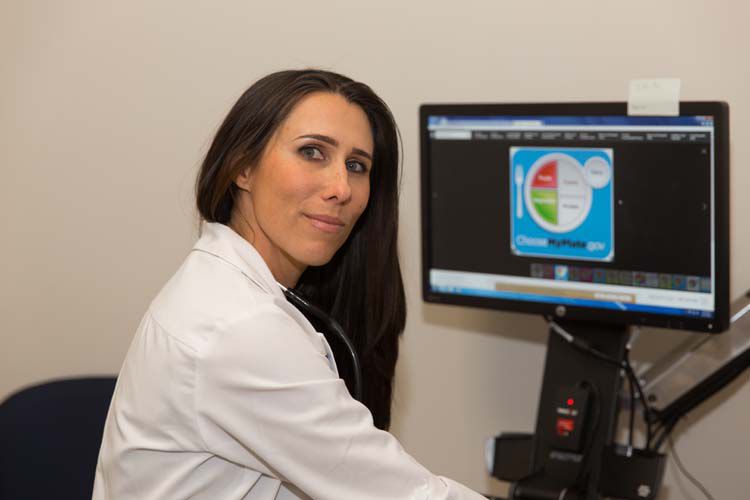Loss of appetite is a common problem in elderly adults, and it can have serious consequences, including unintentional weight loss and undernutrition. Many chalk it up as a normal part of aging, but a study from the United Kingdom concludes increased production of a hormone called peptide YY may be to blame.
Indian River Medical Center’s Felice Haake, DO, a diplomate of the American Board of Obesity Medicine and a member of the Obesity Medical Association (OMA), says that the role of peptide YY in appetite is a well-studied area, with strong evidence of a significant link.
If challenged to name a human hormone, peptide YY is likely not the first to come to mind – but we have all felt its effects. Produced by cells in the small intestine, it is released after eating and tells our brain that we are full.
Researchers from Plymouth University in the United Kingdom enrolled 31 healthy adults in their study, six of whom were over the age of 80. Participants fasted for several hours before eating a meal that contained around 660 calories. The researchers then measured their levels of peptide YY over a three-hour period, and found that those aged 80 or over demonstrated a higher production of the hormone than did the younger participants. The older adults also reported reduced hunger and found the food less pleasant to eat. The results were published in the journal Appetite.
Previous research suggested so-called “anorexia of aging” – a term for this loss of appetite – may be caused by a reduced production of ghrelin, a hormone called the “appetite increaser.” Produced by the stomach, it signals hunger to the brain. The Plymouth University study did not bear that out; there was no difference in levels of ghrelin between the younger and older adults. However, Vero’s Dr. Haake says that larger studies have suggested that a lowered level of ghrelin may be one cause for loss of appetite in older adults.
Anorexia of aging is estimated to affect up to 20 percent of seniors and its cause is not limited to hormone production levels. According to Dr. Haake, there can be physical causes such as congestive heart failure, diabetes, gastrointestinal complaints and COPD (or the medications taken for those and other disorders). Emotional factors such as depression and grief can also play a role. Dr. Haake says “many older people also have a decreased sense of smell and taste; food simply doesn’t taste as good, and there’s less desire to eat.”
If you – or someone you care about – is having a problem with reduced appetite, here are some tips that may help:
- Eat small meals throughout the day – 4 or 5 is optimal. Try to include protein in every meal.
- To keep from feeling full early, avoid liquids with meals, or take only small sips.
- Eat your favorite foods any time of the day. For example, if you like breakfast foods, eat them for dinner.
- Liquid dietary supplements can be an important tool to encourage appetite. Brands include Carnation Instant Breakfast, Boost and Ensure. You should drink these between meals, not as a meal replacement.
- Be as physically active as you can. Sometimes, taking a short walk an hour or so before meals can help you feel hungry.
- Try varying the texture of the foods you eat.
- Socialization can spark the desire to eat. Eat at least some of your meals with family or friends.
Dr. Haake recommends keeping a food log as a way of making sure enough calories and protein are being consumed. For those who are technologically adventurous, she likes the free app “MyFitnessPal”; it’s available for both iPhone and Android smartphones. A pen and paper method will also work fine; just be sure to track everything you eat and (as close as you can) its associated calories, protein carbohydrates and fats. “The very act of logging what you eat will make you more conscious of getting the right amount of protein-rich foods,” Dr. Haake says.
Anorexia of aging can have a significant negative impact on the quality of life of seniors, as well increase the risk of illness. It’s important that those suffering from the condition are evaluated by their doctor, and that an individual care plan be developed to guarantee the intake of adequate amounts of food. Says Dr. Haake: “There may be something that can be changed, like a medication. Or there could be a condition, like diabetes, that needs to be better controlled.” She says in some cases the involvement of a dietician is warranted.
Dr. Haake is a Family Practitioner and Medical Bariatrician affiliated with the Indian River Medical Center. Her office is located at 880 37th Place, Suite 105 in Vero Beach; the office phone is 772-562-9707.

